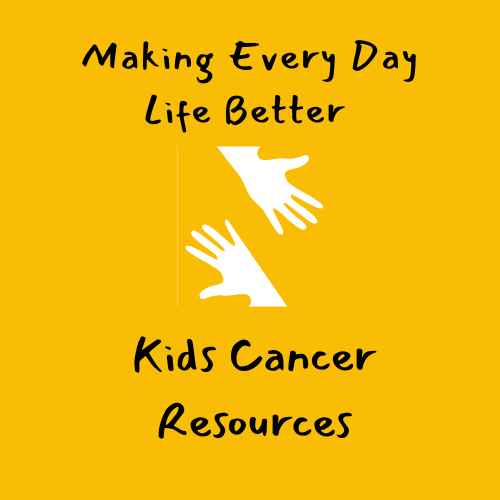Stories That Inspire: Understanding Pediatric Cancer
Pediatric cancer is a profoundly challenging diagnosis that transforms the lives of children and their families overnight. While advances in medical science have improved survival rates, the journey remains daunting, marked by intense treatments, emotional upheavals, and physical hardships. Behind the clinical terms and statistics are real stories of courage, resilience, and hope. These tales highlight not only the battle against disease but the triumph of the human spirit.
Understanding pediatric cancer means recognizing its unique traits. Unlike adult cancers, pediatric types often grow rapidly and require specialized treatment approaches. Common pediatric cancers include leukemia, brain tumors, neuroblastoma, and lymphomas. Each diagnosis brings a distinct set of challenges, but every child’s story also offers valuable insights into perseverance and love.
Medical Advances Paving the Way for Hope
The fight against pediatric cancer has seen remarkable progress over the last few decades due to innovations in research, diagnostics, and treatment methods. These breakthroughs provide a vital foundation for the inspiring stories of recovery and survival.
Targeted Therapies and Precision Medicine
Traditional chemotherapy and radiation can be harsh and carry significant side effects, especially for children. In contrast, targeted therapies focus on specific cancer cells, sparing healthy tissue. Precision medicine tailors treatment plans to a child’s genetic profile, increasing effectiveness and reducing toxicity. This personalized approach is transforming outcomes for many pediatric cancer patients.
Improved Supportive Care
Advances are not limited to fighting the disease directly. Enhanced supportive care addresses pain management, nutrition, psychological support, and infection control. These improvements improve quality of life for children undergoing treatment, enabling them to withstand therapy better and maintain hope.
Common Pediatric Cancer Types and Survival Stories
Every pediatric cancer diagnosis comes with unique hurdles, but countless families share stories that inspire others facing similar battles.
Leukemia: The Most Common Pediatric Cancer
Acute lymphoblastic leukemia (ALL) accounts for a large majority of childhood leukemia cases. Thanks to modern chemotherapy protocols, the five-year survival rate for ALL exceeds 85%. Parents of children with ALL often speak of initial fear, the shock of hospital stays, and finally the joy of remission.
– Example: A young boy diagnosed with ALL at age 4 endured intensive chemotherapy with emotional support from his family. After two years, he entered remission and resumed normal school life, symbolizing resilience.
Brain Tumors: Story of Strength and Adaptation
Brain tumors vary widely, from benign to highly malignant types. Treatment typically includes surgery, radiation, and chemotherapy. Many children develop life-changing skills to adapt after treatment, such as improved memory techniques or physical therapy. Stories from survivors emphasize both medical courage and emotional growth.
Emotional Resilience: The Heart of Pediatric Cancer Stories
Facing pediatric cancer affects the entire family emotionally and mentally. Many narratives focus on the psychological resilience children show even in the toughest times.
The Role of Families and Communities
Strong family bonds act as vital lifelines. Parents, siblings, and extended relatives provide love, encouragement, and practical support that sustain children. Communities often rally around affected families, providing financial assistance and emotional care.
– Quotes:
– “My daughter’s laughter was our shield during chemotherapy sessions.” – Parent of a brain tumor survivor.
– “We learned to cherish every small victory, no matter how small.” – Mother of a leukemia patient.
Psychological Support Strategies
Hospitals now integrate child life specialists and psychologists to help children process their experience. Techniques include art therapy, play therapy, and guided mindfulness. These interventions improve coping skills and emotional well-being, contributing to better recovery outcomes.
Practical Tips for Families Navigating Pediatric Cancer
Families embarking on this difficult journey benefit from clear strategies to manage the day-to-day realities of pediatric cancer.
– Stay organized: Maintain a detailed calendar of appointments, medications, and treatment schedules.
– Seek support: Connect with local support groups and online communities.
– Advocate: Be proactive in discussing treatment options and side effects with medical teams.
– Prioritize self-care: Parents need rest and emotional support to sustain caregiving.
– Educate: Learn about the specific cancer type, treatment protocols, and possible complications.
Reliable resources include the [American Cancer Society’s pediatric cancer section](https://www.cancer.org/cancer/cancer-in-children.html) and specialized pediatric oncology centers.
The Future of Pediatric Cancer Care: Innovation and Inspiration
Ongoing research holds promise for even better outcomes. Immunotherapy, gene editing, and advanced imaging techniques are among the frontiers being explored.
Families and survivors also contribute by sharing their stories, raising awareness, and advocating for funding. These collective efforts not only drive scientific progress but foster a compassionate network for every child touched by pediatric cancer.
The Power of Storytelling
Narratives of overcoming pediatric cancer provide powerful inspiration. They highlight that despite fear and uncertainty, hope remains a constant. Sharing these stories helps combat isolation and stigma, replacing it with understanding and motivation.
Encouraging Participation in Clinical Trials
Clinical trials are essential for advancing treatment. Families are encouraged to discuss trial options with their healthcare providers, as participation could offer access to cutting-edge therapies.
Hope Is a Journey, Not a Destination
The tales of courage in the face of pediatric cancer are remarkable examples of human perseverance. Every child’s story teaches valuable lessons of strength, community support, and medical progress. While challenges persist, the progress to date fuels optimism for the future.
If you or a loved one are navigating pediatric cancer, remember you are not alone. Reach out to medical professionals, support networks, and informational resources to empower your journey. For personalized guidance and support, consider visiting khmuhtadin.com today and connect with compassionate experts ready to assist you every step of the way.




